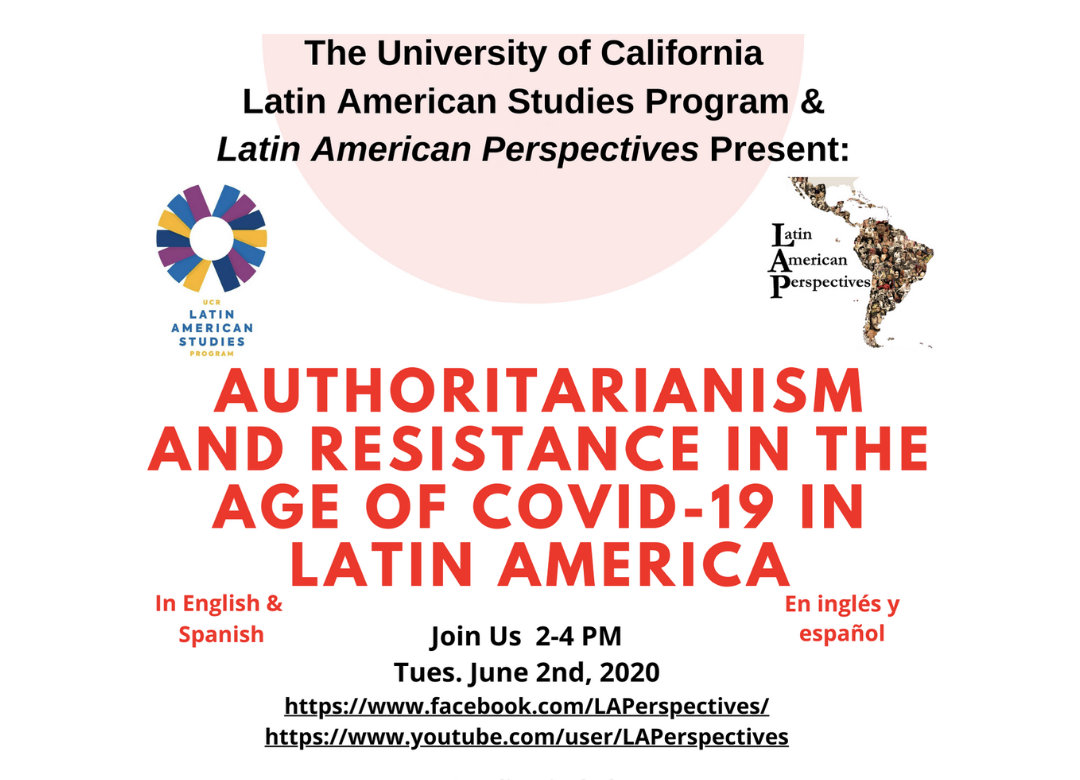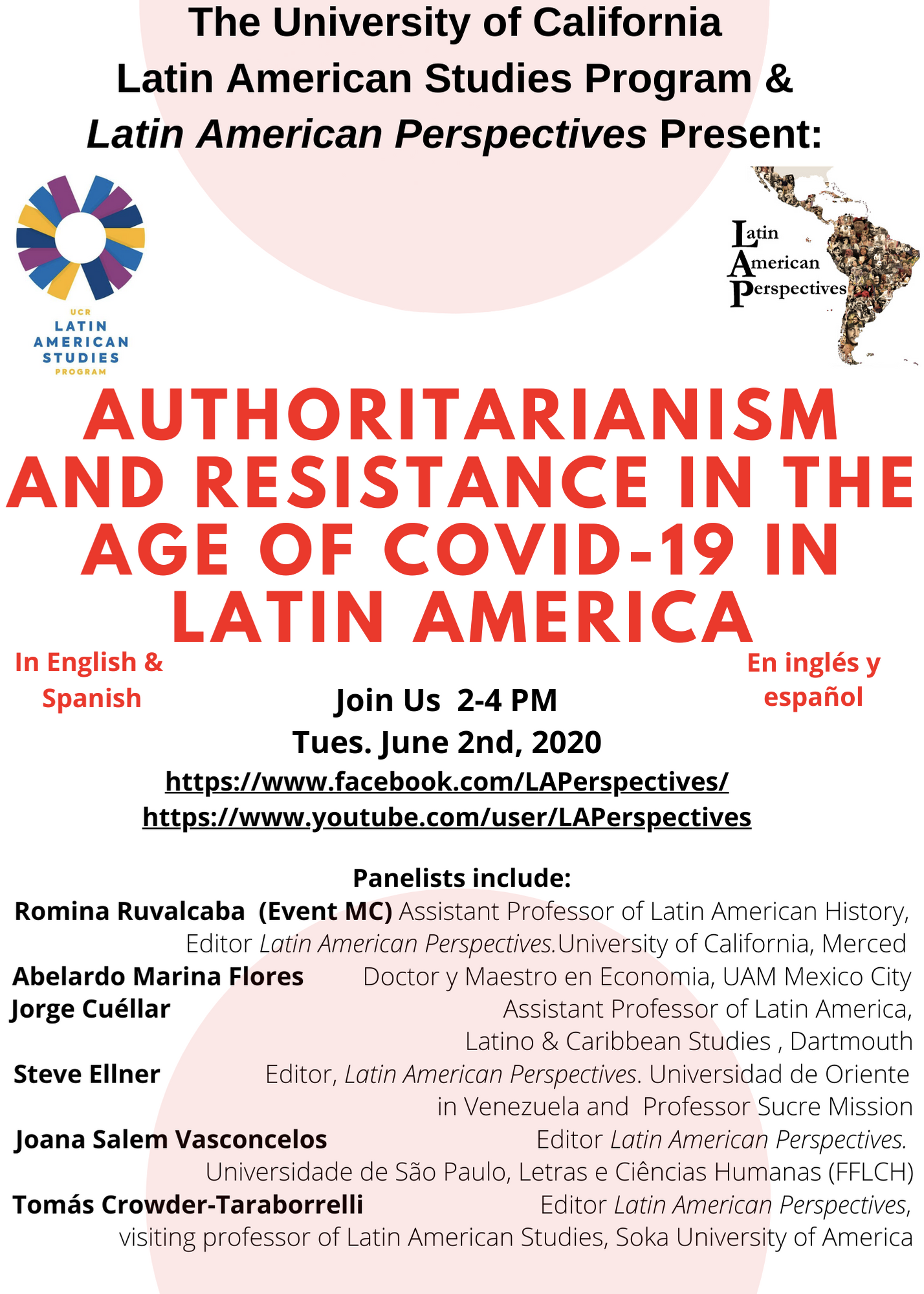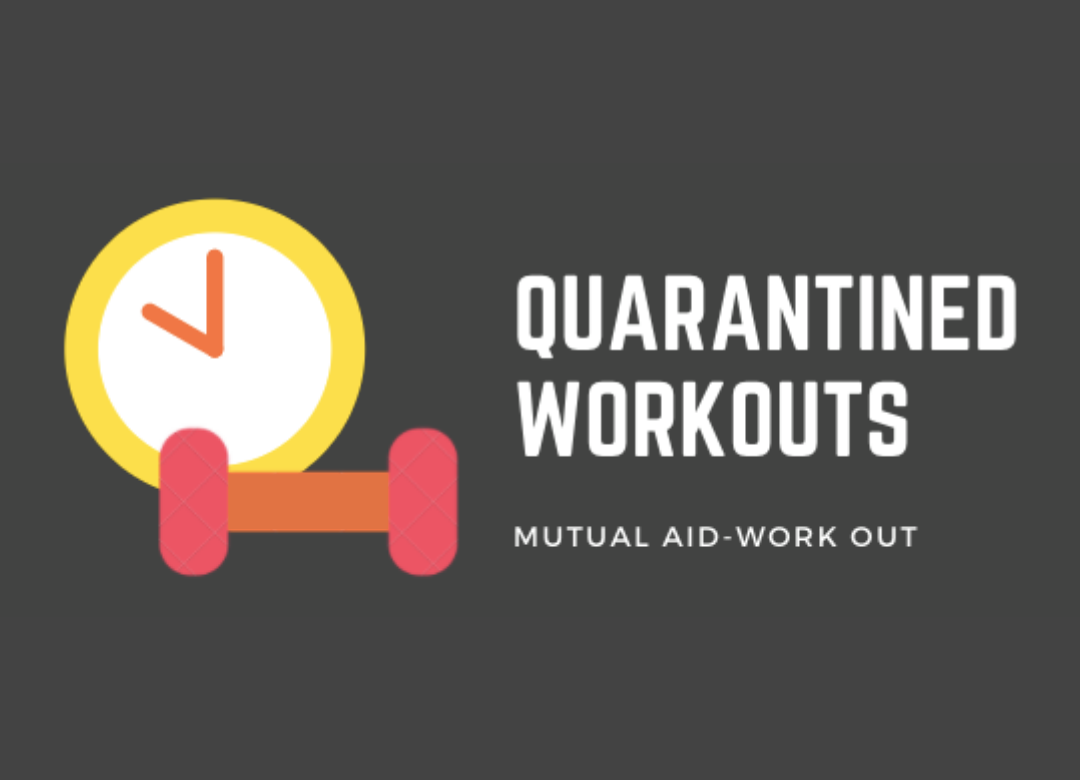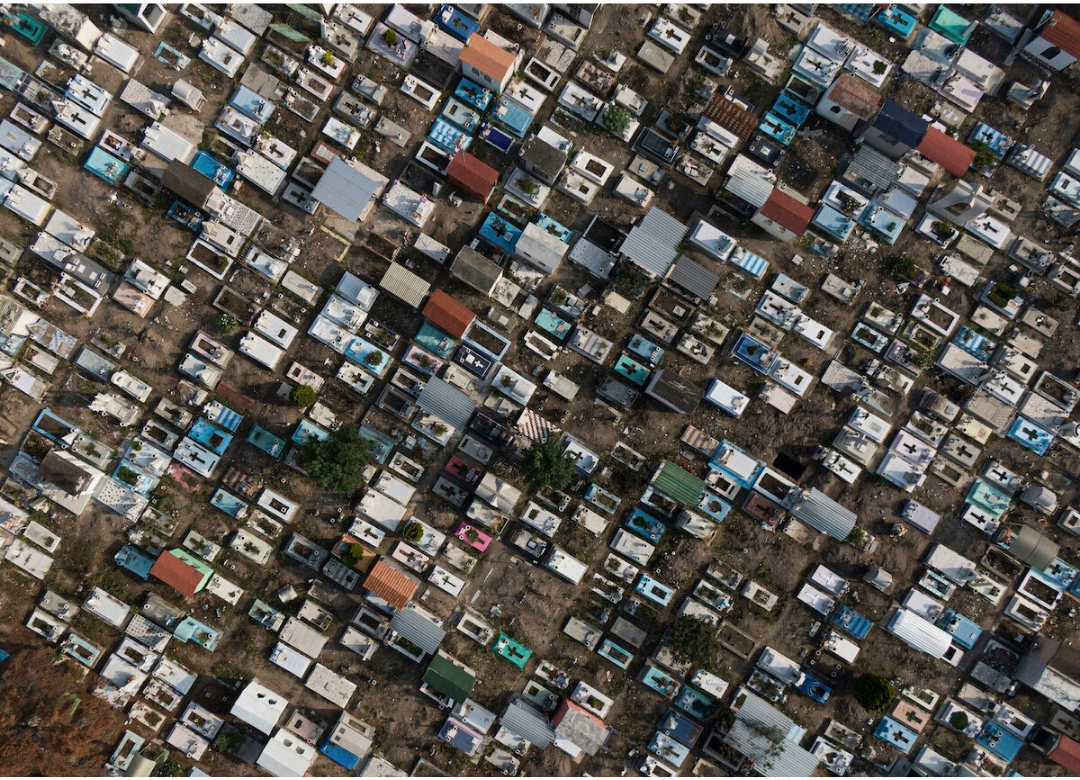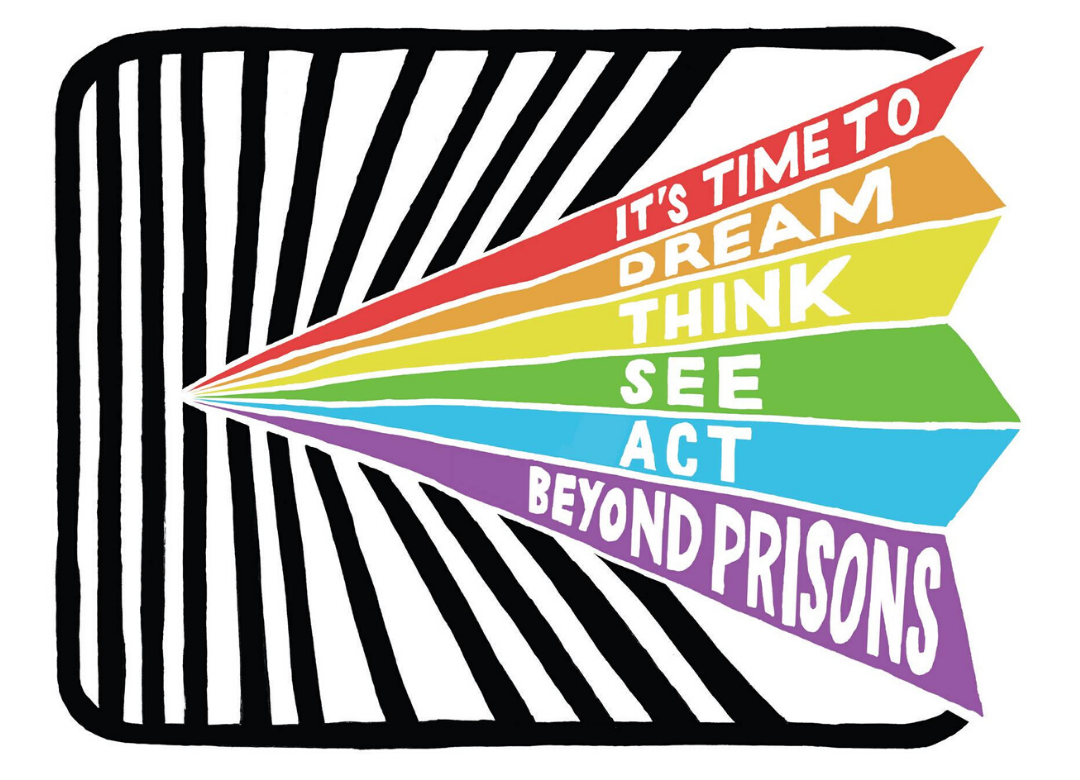Quarantine Workouts with the ETST Mutual Aid Collective!
AnnouncementsAre you having trouble exercising during the quarantine? The UCR Ethnic Studies Mutual Aid Collective is now providing quarantine workouts! See flyer below for more details.
If you would like to participate in our mutual aid collective by providing and receiving support, please sign up at this link: https://forms.gle/FZEJoYNPGs78dhkn8

The Migrant Phantoms of the Pandemic, by Prof. Adrián Félix
PublicationsProf. Adrián Félix published an op/ed, “The Migrant Phantoms of the Pandemic,” in Latino Rebels. Excerpt below:
The climbing death toll of COVID-19 has brought to light an often-overlooked end-of-life ritual among Mexican migrant communities in the U.S.:the repatriation of deceased compatriots from the U.S. to their ancestral homelands in México. Among the many unforeseen tragic consequence of the outbreak, the pandemic is disrupting this long-standing postmortem return migration. Ironically, this immobilization of Mexican migrants in death is symbolic of how they have been excluded in life by the Donald Trump and Andrés Manuel López Obrador (AMLO) administrations on both sides of the border.
As the contagion has careened through the planet —painfully laying bare the racial disparities of public health— newspapers like the Los Angeles Times and The New York Times have paid homage to the migrant victims who have been deprived of a proper posthumous homecoming due to the disease.
“Along with intense emotional anguish and a sudden economic void from the loss of crucial providers, their families must endure another blow,” writes the LA Times about families in México grieving their deceased loved ones in the U.S. “The crisis has made it almost impossible to ship bodies back to Mexico for burial.”
In a similar elegiac tone, the NY Times writes of Mexican migrants who have succumbed to the pandemic in New York City: “For the area’s Mexican immigrants —a community already hit hard by the virus— the pandemic has brought another cruel change. Mexican families typically send bodies home, for flower-strewn Catholic burials, and to give relatives the chance to glimpse their loved ones again after long separations.”
In the wake of COVID-19, the NY Times ominously states, “that sacred rite has come to a halt.”
In my 2019 book Specters of Belonging: The Political Life Cycle of Mexican Migrants, I trace these posthumous repatriations across the México-U.S. border and unearth their political significance for México-U.S. migration. As political scientist Osman Balkan so hauntingly puts it in a different ethno-religious migratory context: “Death in the diaspora also raises existential questions about the meaning of home…the act of burial serves as a means to assert belonging, attachment and…loyalty to a particular group, nation, or place.” The necropolitics of this practice reverberate across international boundaries, for, as Balkan asserts, “Experiences with racism, discrimination, or xenophobia generate a feeling of perpetual foreignness, which follows individuals to the grave.”
Image above: The San Isidro cemetery, that the city’s authorities ordered temporarily closed to the public to keep crowds away as a measure to limit the spread of COVID-19 disease, is seen from the air in Mexico City, Sunday, May 10, 2020. (AP Photo/Fernando Llano)
Mutual Aid Spotlight, Interview with Prof. Alisa Bierria
PublicationsProf. Alisa Bierria was interviewed by the Black Agenda Report about mutual aid as an organizing practice. Excerpt below:
How does this work fit into the broader struggle for change you are working on? How does it mobilize for change rather than merely being a “band aid” on a harmful system?
I was a member of the #FreeBresha participatory defense campaign to free Bresha Meadows, a Black girl who was only 14 years old when she fatally shot her physically and sexually abusive father. Bresha attempted to get help from multiple authorities before the shooting, all of whom failed to help her. So, she acted on her own to defend her life. In a recent interview, Bresha said it never occurred to her that she would go to jail. She thought it would be obvious that she was acting in self-defense, and everyone would agree.
It’s remarkable and powerful to me that Bresha thought it would be obvious that jailing her for saving her life would be out of the question. Because the principle of punishment occupies so much of our instinct here in the U.S., this is, disturbingly, incorrect. I think “reason” is a landscape on which mutual aid can have a profound impact. Bresha’s story reveals that mutual aid in the form of defense campaigns has to be about more than decarceration and more than ensuring material needs are met; mutual aid is about creating a radical shift in what we think is reasonable to expect. In the participatory defense campaigns I’ve worked on, we’ve used a number of strategies — media advocacy, art, political education, research, foregrounding survivors’ narratives of their own lives and choices — to make a case that incarcerating survivors for navigating conditions of violence is actually horrifying, doing so should be out of the question, and freeing incarcerated survivors is an obvious moral imperative. Mutual aid has the potential to transform “common sense.”
…
Do you think mutual aid work has any special or particular role in the current conditions/crises?
In light of the pandemic, we have seen an extraordinary emergence of mutual aid strategies around the world. These efforts provide opportunities for people to support each other and be provided with what they need, build community networks, and participate in political education, all key components of mutual aid praxis. They also shine a light on life-saving mutual aid work that existed before the pandemic. For example, organizations like the California Coalition for Women Prisoners (CCWP) have been able to respond quickly to the Covid-19 crisis in prisons because, through decades of supporting, learning from, and building networks with people across prison walls, their members have built an infrastructure of relationships and skills that challenge the health crisis of prison itself. Mutual aid practices address immediate and ongoing needs while equipping us to recognize and respond to future needs.
But I’m also interested in how people have used the crisis to ask important questions about capitalism. For example, if states can release thousands of people from jails to avoid worsening a pandemic, do we even need jails at all? Does the current rent-strike raise questions about whether rent is necessary to have housing? Does the suspension of federal student loan payments suggest that it’s within our reach to permanently cancel multiple forms of debt? Also, the way the pandemic has shone a light on the ease in which the U.S. treats immigrants, poor people and people without stable and safe housing, incarcerated people in all forms of lock-up, elders and disabled people, Black women, etc. as essentially disposable may not be surprising to many of us, but is always devastating. Under Covid-19, we’ve learned more about vulnerability, collective capacity, and how things that seem permanent (good or bad) can actually become quickly unsettled. I’m hoping we can use those insights to take a fresh look at things like Universal Basic Income, prison abolition, profound racism in the healthcare industry, disability justice, and safe and accessible housing.
—
Art above by Josh MacPhee

